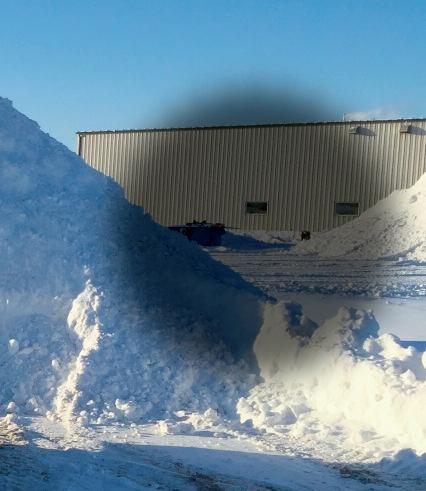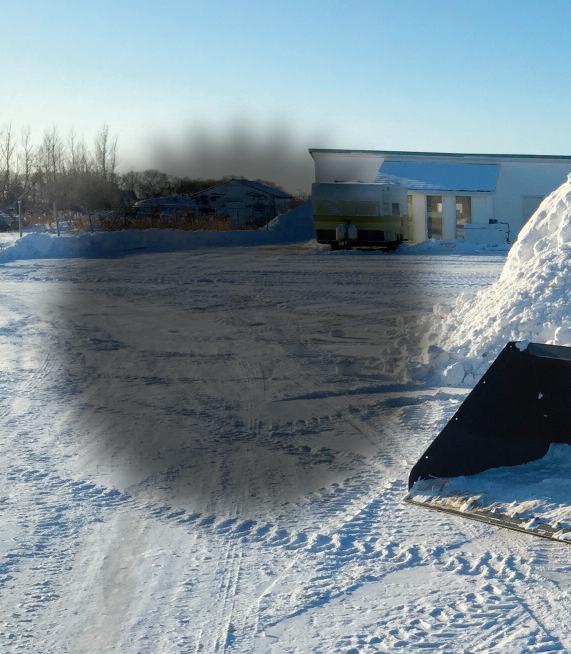
5 minute read
Throughout 2022, Outrage Dominated Social Media. Did All This Outrage Change Anything?
by RM Review
There’s always outrage when what's deemed a significant event occurs Inevitably we jump on our social media accounts to display our anger, our "outrage," which results in the ultimate lazy and hypocritical act of protest, virtue signalling
Social media has made it extremely easy to be theatrically outraged to get likes and clicks between sipping your Starbucks Caramel Brûlé Latte
Advertisement
On both sides of the political spectrum, people of all ages, races, and economic backgrounds are outraged about something today We live in a period of human history where every demographic feels they're somehow being violated and victimized The outrage ranges from billionaires who believe their tax burden is oppressive to the Gen Zs who hijack digital stages hurling insults at strangers whose views differ from theirs
The level of outrage is rising across all sectors of society, as you've probably noticed You're either outraged when you see someone without a mask or outraged when someone is wearing a mask (Why can't we shrug our shoulders and say to ourselves, "Each to their own"?) People who complained about Stephen Harper's tax hikes now equate any tax increase to communism and fascism
Outrage is addictive Social media is the perfect medium for expressing outrage, usually from an anonymous account, while comfortably sitting at home What's easier and more crowd-pleasing:
A Tweeting your outrage at John Tory's failure to address Toronto's homelessness, or
B Putting your frivolous spending, which we all indulge in, on hold and donating to a local shelter instead?
In 2022, we were outraged by the following:
• Will Smith
• Russia-Ukraine war Rogers service outage
• Lisa Laflamme
• Mahsa Amini / Iran protests
As I write this, Will Smith's career is still going strong The RussiaUkraine War continues Rogers Communications and Bell are still in business (I guess the #boycottRogers and #boycottBell didn't resonate with subscribers ) Iranians are still protesting Mahsa Amini's death on September 16th while in police custody, and the Iranian government continues to arrest and execute people
Outrage-fueled narratives thrive in the age of social media, absorbing large quantities of our attention. Based on what I've seen, any viewpoint is taken to emotional extremes News anchors who a week
By Nick Kossovan
ago expressed mild concern about civil unrest or a virus inevitably morph into making apocalyptic predictions Experts who gave balanced advice are replaced with doomsayers Social media influencers and mainstream media pundits adopt absurd positions to get people upset and talk about them (e g , Jordan Peterson)
Every day, all day, we vent our outrage on social media Additionally, we tag those who inflamed us, letting them know our feelings That'll show them!
Meaningful action has been replaced by "blips of theatrical outrage" on social media platforms The lack of meaningful action is responsible for the sluggish pace at which social injustices are addressed We're aware of all our social ills, and if social media talk is any indication, they outrage us, but we rarely act on it
For example, our earth is undeniably changing due to climate change Almost everyone I know is outraged that governments aren't doing more to combat climate change. Yet, how many people, including yourself, have radically altered their 1st world lifestyle to reduce their ecological footprint?
The shortage of Christmas trees outraged those who claim to be concerned about climate change Is there anything more environmentally wasteful than cutting down a healthy tree that produces oxygen, transporting it (using fossil fuels), then decorating it and trashing it after a few weeks?
Many people reading this will say, "I rarely use social media Why should I care about all this outrage taking place on social media?" (Remember when people tried to portray themselves as being "superior" with their time saying, "I rarely watch television?") Don't kid yourself; you all of us are downstream from social media's effects on television, radio, and traditional journalism Increasingly what passes for journalism is reporting on the outrage exchanges on Twitter, Facebook, TikTok, Instagram, et al
Let's cross our fingers that the pandemic will officially end sometime in 2023, easing much of the angst being expressed on social media Meanwhile, instead of being upset over everything and filling social media with reactionary posts, identify the issues that bother you the most and research them thoroughly Then decide what you can do to contribute to the solution, and this is key take action! The simple act of expressing outrage on social media has no tangible, meaningful value, but contributing to the solution does
Nick Kossovan, a self-described connoisseur of human psychology, writes about what's on his mind from Toronto. You can follow Nick on Twitter and Instagram @NKossovan
Text or PM Alma Bartsch at 306 - 493 - 7778
- Purchase by Feb 13
January 11, 2023 (Saskatoon, SK) – Today Saskatchewan




Pulse Growers (SPG) announced funding for 17 pulsespecific research projects, co-funded through Saskatchewan’s Agriculture Development Fund (ADF) SPG’s total investment of over $3 million was leveraged through the ADF process for a total investment in pulse research and development of over $6 7 million These research projects are over two to five years in duration and will involve pea, chickpea, soybean, lentil, dry bean, and faba bean, and address disease, root rots, herbicide resistance, insect control, fungicide use, soil fertility management, and processing A complete list of projects, including researchers, and SPG’s investment can be seen below
The Prairie Crop Disease Monitoring Network: Fostering further network development, Dr Thomas Turkington, Agriculture and Agri-Food Canada – $37,982
The effect of liming on soil phosphorus use efficiency and cycling, Dr Barbara Cade-Menun, Agriculture and Agri-Food Canada – $49,610
Examining potential threats from Pea Seed-borne Mosaic Virus and developing Pea Seed-borne Mosaic Virus (PSbMV) based tools to study legume seed development, Dr Sean Prager, University of Saskatchewan – $86,825
ROCET – Rapid, on-farm, cost-efficient electrochemical testing for contaminants in grain, Dr Sabine Kuss, University of Manitoba – $52,095
Insect response to climate change and ag-inputs across the Prairies, Dr Meghan Vankosky, Agriculture and Agri-Food Canada – $88,000
Flax-chickpea intercropping for disease management – fungicide regime and variety selection, Randy Kutcher, University of Saskatchewan –$129,950
Exploring the diversity of Fusarium solani and F oxysporum infecting pulse crops, Dr Sabine Banniza, University of Saskatchewan – $155,906
Development of molecular tools for Fusarium avenaceum root rot resistance in lentil with different seed coat pigmentation, Dr Sabine Banniza, University of Saskatchewan – $484,168
Developing soybean cultivars for profitable, sustainable prairie cropping systems, Dr Tom Warkentin, University of Saskatchewan – $310,788
Increasing protein-yield in pea using nested association mapping, Dr Tom Warkentin, University of Saskatchewan – $160,354
Development of SNP markers for marker-assisted selection of pea for water use efficiency and micronutrients, Dr Tom Warkentin, University of Saskatchewan – $66,555
Genetic tools to ensure Saskatchewan dry beans are protected from anthracnose, Dr Kirstin Bett, University of Saskatchewan – $148,765
Reduction of off-flavors and improvement of color of plant proteins: Potential and feasibility of ozone treatment processes, Jafar Soltan, University of Saskatchewan –$51,750
Commercially-ready vegan protein-based entrapment systems for probiotics for inclusion in plant-based foods, Darren Korber, University of Saskatchewan – $34,500

Expanding herbicide tolerance options in lentil through gene-editing, Dr Jodi Souter, J4 Agri-Sciences Ltd –
$557,001
Develop a novel tribo-electrostatic (TES) technique for dry separation of protein and starch from pulses/cereals, Venkatesh Meda, University of Saskatchewan – $343,850
Improving flavor of pea protein using clean-label structural modifications and different pilot-scale processing techniques, Dr Thushan Withana-Gamage, KeyLeaf – $251,419
“The continued support of the ADF is greatly appreciated,” said Trent Richards, Saskatchewan Pulse Growers Board Chair “The funding supports SPG’s new research investments that work to address top concerns and improve profitability and competitiveness of Saskatchewan pulse producers ”
Other co-funders of projects funded by SPG include Saskatchewan Ministry of Agriculture, Saskatchewan Wheat Development Commission, Saskatchewan Canola Development Commission, Alberta Wheat Commission, Manitoba Canola Growers, Manitoba Crop Alliance, Prairie Oat Growers Association, and Western Grains Research Foundation The ADF is supported through the federal-provincial Canadian Agricultural Partnership, between the federal and provincial governments to invest in strategic initiatives for Saskatchewan agriculture
















